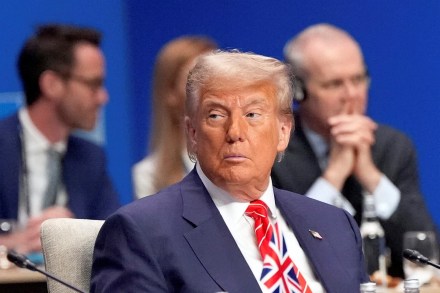US President Donald Trump insisted on Wednesday that recent airstrikes had ‘severely’ damaged Iranian nuclear sites — while admitting that intelligence had been ‘very inconclusive’ about the impact. Both Trump and key members of his administration have repeatedly claimed that the US had ensured “total obliteration” of nuclear sites in Iran. The POTUS also dismissed a preliminary US intelligence assessment said that the airstrikes did not destroy Iran’s nuclear capability and only set it back by a few months. Satellite images appear to back this claim. The Trump administration however appears undaunted — with the President refusing to rule out the possibility of fresh strikes on Wednesday.
The Republican leader remained noncommittal while fielding questions during the NATO Summit — delivering a one word answer when asked if the US would consider future strikes if Iran started to rebuild its nuclear facilities.
“Sure,” reports quoted Trump as saying without elaboration.
The US had joined the Israel-Iran conflict over the weekend — dropping bunker buster bombs on various Iranian nuclear sites. A ceasefire is currently holding after a 12 day clash between the two countries that left hundreds dead and injured on both sides.
“The intelligence was … very inconclusive. The intelligence says: We don’t know, it could have been very severe. That’s what the intelligence says. So I guess that’s correct, but I think we can take the ‘we don’t know’. It was very severe. It was obliteration,” Trump told reporters ahead of a summit in The Hague.
Later, during the same round of comments, Trump argued that Iran’s nuclear deal had been set back “basically decades, because I don’t think they’ll ever do it again”. He was accompanied to the annual NATO leaders’ summit by Secretary of State Marco Rubio and Secretary of Defense Pete Hegseth — both of whom have also also cast doubt on the reliability of the DIA assessment. Rubio said the US was opening an investigation into the report leak and suggested its contents had been misrepresented in the media.
(With inputs from agencies)
